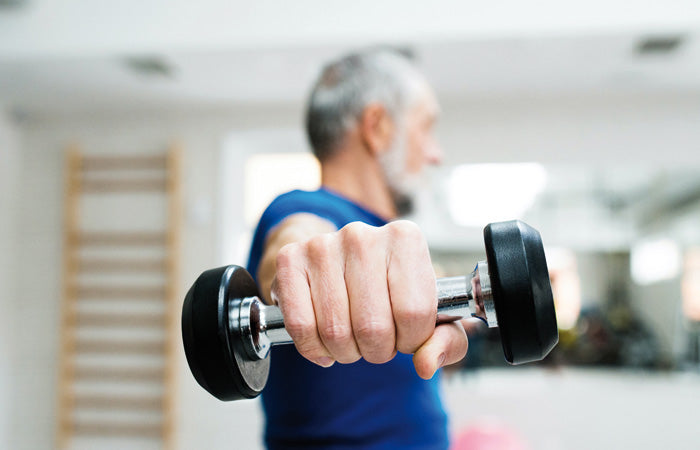With age we lose muscle mass, strength and functionality. Regular physical activity, strength work and adequate protein consumption are essential to alleviate the negative effects on health that this process of loss of muscle mass implies.
The protein needs of the elderly are different from those of other groups.
The maintenance of muscle mass is a balance between muscle protein synthesis (anabolism) and protein breakdown (catabolism), this can lead to loss of muscle mass or muscle gain.
As we age, changes in our body composition occur, including increased accumulation of fat and decreased muscle mass.
Adequate nutrition, physical exercise and strength work are essential to prevent the breakdown of muscle proteins from exceeding their synthesis. We must therefore also increase protein consumption, thus avoiding what is known as Sarcopenia (a condition characterized by loss of muscle mass, strength and function in older adults. This increases the loss of functional independence, risk of falls and fractures, and other inconveniences).
The general recommendation for protein consumption is between 0.8g and 1g per kg of weight. Lower range for sedentary people and higher for active people who perform physical activity.
In the case of adults over 65 years of age, a protein intake between 1.2g and 2.0g per kg of weight would be recommended. Again, lower range for sedentary people and higher for active people and/or training. It is important to note that, at this age, it is extremely important to train strength to alleviate the side effects of age.

